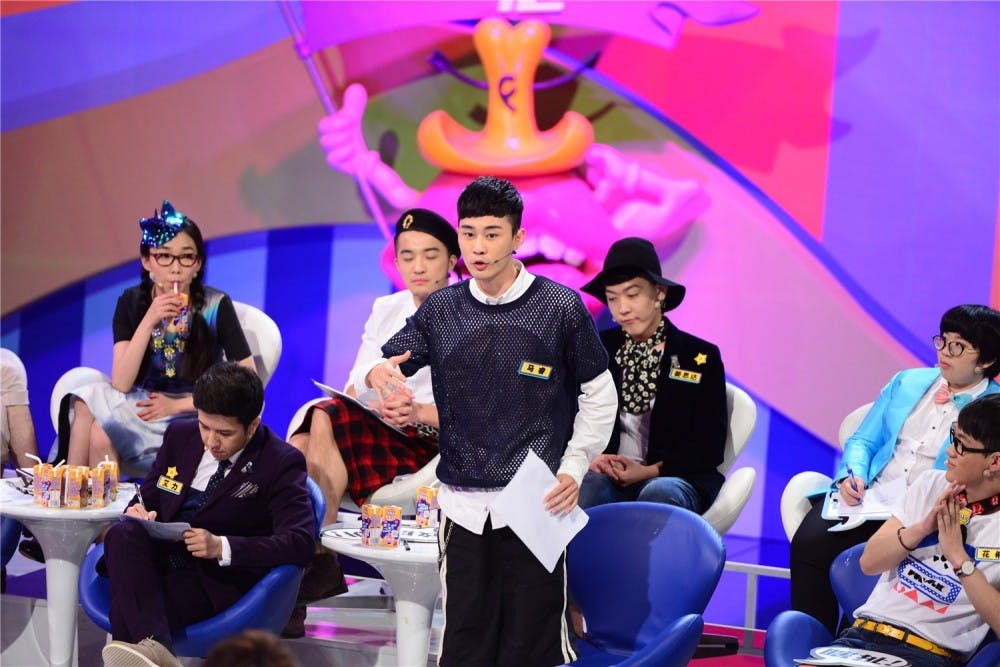About two weeks after the broadcast of a network program U CAN U BIBI season two episode six, the Chinese State Administration of Radio Film and Television, a national institution that controls the censorship of all the audiovisual products including movies and TV or web programs, replaced this episode silently with no exact reason. This was the normal official response, however, it is said the reason was that the views about coming out of the closet in the program challenged the traditional social values. I tried to verify this information with one of the producers of this program who is a friend of mine, but he refused to acknowledge it.
BIBI is a cyber word, which means “talk to someone but in a ridiculous way.” U CAN U BIBI is a new popular network program among young adults, which derives from debate competition but has more freedom on the rulemaking. In each episode, there are three fixed famous Chinese celebrities and a randomly selected popular guest acting as judges. The judges’ work is to give players a hot Chinese social issue, then comment on and summarize the performance of players from two teams.
This program is now in its second season, which has been popularly followed and highly recommended by the young generation of China. Since it came online, the show has set a surprising record; every episode has more than 15 million page views on average. As the aim of the program is to find the one who knows the art of language best in ethnic Chinese, its past topics covered a lot of ground including questions like “should we shield our parents from social media?” “Should we urge our friends to return our money?” “Should we become the person our lover wants us to be?”and so on. U Can U Bibi is a brand new show, which does its best to express the voice of the public under rigorous Chinese regulations on freedom of speech.
The topic of the banned episode is “should we support homosexual marriage in law or not?” This prompted a national discussion on the Internet. It is quite interesting to debate this issue because one of the judges is a famous transgender dancer named Jinxing and another judge is a famous presenter from Taiwan, Kanyong Cai, who is the first of very few artists to come out of the closet publicly in Taiwan. Besides the background of the judges, two players had already come out of the closet publically. In that episode, Kangyong Cai complained tearfully about how hard it is to be a gay against social pressure, and said he didn’t want to be treated like a monster. This moved a lot of people and let many people first know about the situation of homosexual people in China. After the show was banned, many people commented that Cai told us how eager he is to live normally, but he still is treated as a monster.
In fact, in China, due to its five thousands years of feudal ethics and rites, most people hold a conservative attitude towards homosexuality, especially those people born in the 1950s to 1970s. Not until 2001 did China remove homosexuality from the list of mental diseases, but the change of laws didn’t give homosexual the rights they deserved. Homosexuals still face strong resistance from the society and their families. One of the main reasons most traditional Chinese parents oppose homosexual marriage is that they believe only through a traditional family can children inherit family traditions, just like from ancient times when the Chinese believed that boys were better than girls because they had the ability of reproduction.
It has been nice to see in recent years with the emergence of social media, young people finding the platform to speak for homosexuals and other minorities. On June 26th, 2015, the American Supreme Court ruling striking down state marriage bans made the USA the twenty-first country supporting and protecting homosexual marriage by law. The same day in China, despite the government’s banning access to Twitter and Facebook, many Chinese homosexual marriage supporters still tried every means to change their social media profile pictures to iridescent backgrounds as a response to this memorable progress in homosexual history.
Rome was not built in a day. The road leading to equality in China will be long and our climb will be steep.


